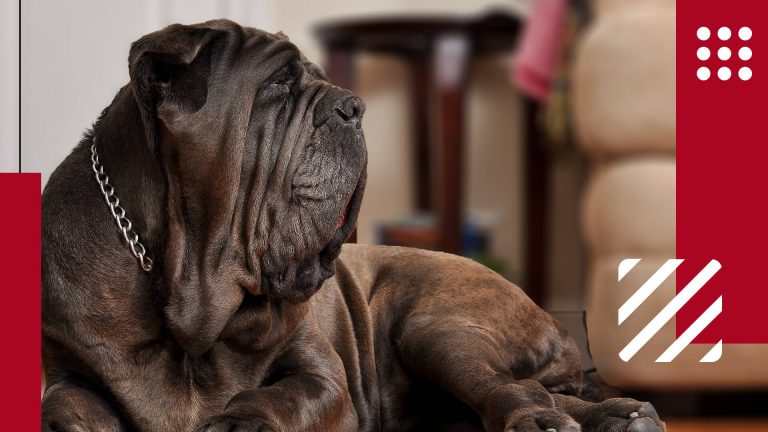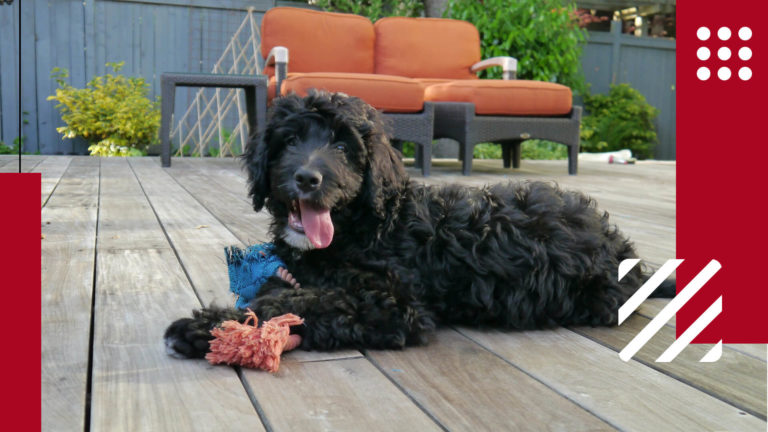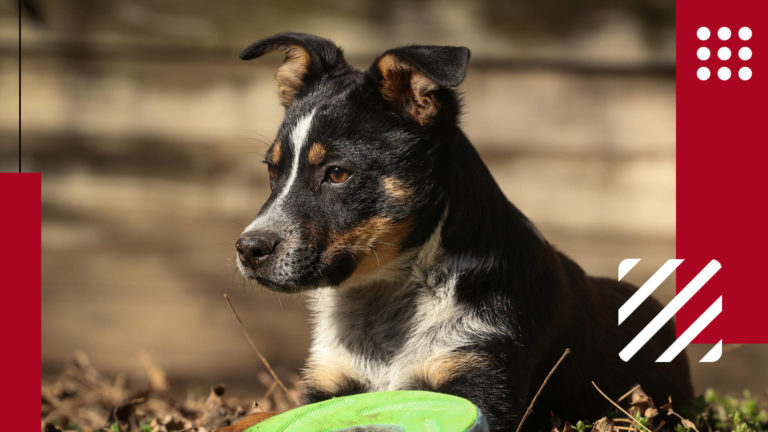The Belgian Sheepdog, also known as the Belgian Groenendael, is a breed of herding dog that originated in Belgium. It is a member of the Belgian Shepherd Dog group, which also includes the Tervuren, Malinois, and Laekenois breeds.
The Belgian Sheepdog was developed in the late 1800s as a working dog for farmers in Belgium. The breed was created by crossing various sheepdogs, including the French Shepherd, the German Shepherd, and the Dutch Shepherd.
The Belgian Sheepdog is a medium to large breed with a strong, muscular build and a dense, weather-resistant coat. It is an intelligent, energetic, and loyal breed that is well-suited to a variety of tasks, including herding, obedience, and protection work. In addition to its work as a farm dog, the Belgian Sheepdog has also been used as a search and rescue dog, a guide dog, and a therapy dog.
Distinctive Features of Belgian Sheepdog
| Breed Name | Belgian Sheepdog |
| Lifespan | Up to 14 years |
| Size | Large |
| Weight | 55-75 pounds |
| Height | Up to 26 inches |
| Coat | Long, thick, and weather-resistant |
| Color | Typically black, although some may have a small amount of white on the chest |
| Health risk | Moderate |
| Unique trait | Elegant and athletic appearance |
| Famous for | Originally bred for herding and guarding livestock |
| Temperament | Intelligent, loyal, and protective |
| Maintenance | High |
| Adaptability | Moderate (prefers active lifestyles and benefits from space to roam) |
| Behavior | Generally good, but supervision is recommended |
| Personality | Active, alert, and responsive |
| Social | May be reserved with strangers, but generally good with proper socialization |
The Belgian Sheepdog is a medium to large breed of dog with a distinctive appearance. It has a long, rectangular head with a black muzzle, dark, almond-shaped eyes, and medium-sized, triangular ears that stand upright. The breed has a strong, well-muscled neck and a long, straight back. Its tail is typically docked to a length of about 4 inches.
The Belgian Sheepdog has a thick, double coat that is long, straight, and dense. The coat is typically black, but it may also be fawn, gray, or red. The breed's coat requires regular grooming to maintain its condition and appearance.
The average lifespan of a Belgian Sheepdog is 12 to 14 years. The breed is typically healthy, but it may be prone to certain health conditions, including hip dysplasia, eye problems, and skin allergies.
In terms of size, male Belgian Sheepdogs are typically larger than females. Males typically stand 24 to 26 inches at the shoulder and weigh between 55 and 75 pounds. Females typically stand 20 to 24 inches at the shoulder and weigh between 40 and 60 pounds.
How to Take Care of Pet Belgian Sheepdog?
Owning a Belgian Sheepdog is an incredibly rewarding experience. With their stunning appearance and unwavering loyalty, they make wonderful companions. Get ready for an active and intelligent partner who will thrive on your love and attention.
Caring for a Belgian Sheepdog involves several important aspects:
How to Set Up Habitat for a Pet Belgian Sheepdog?
As with any pet, it is important to provide a safe, comfortable habitat for a Belgian Sheepdog. Here are some things to consider when setting up a habitat for a Belgian Sheepdog:
- Provide a spacious, secure yard: Belgian Sheepdogs are active, energetic dogs that need plenty of space to run and play. They should have access to a securely fenced yard where they can safely exercise and play.
- Ensure access to fresh water: Belgian Sheepdogs need access to clean, fresh water at all times. Keep a water bowl filled with clean water in a convenient location in the yard.
- Provide shelter: Belgian Sheepdogs need access to shelter to protect them from the elements. This can be a doghouse or a covered area, such as a porch or garage. Make sure the shelter is large enough for the dog to stand up and turn around in, and provide a warm, comfortable bed or blanket for the dog to sleep on.
- Make sure the habitat is safe: Keep the yard free of potential hazards, such as toxic plants or sharp objects. Remove any debris or clutter that could pose a risk to the dog.
- Provide plenty of toys and activities: Belgian Sheepdogs are intelligent, active dogs that need mental and physical stimulation. Provide a variety of toys and activities, such as balls, chew toys, and puzzle toys, to keep the dog entertained.
- Monitor the dog's behavior: Pay attention to your Belgian Sheepdog's behavior and make any necessary adjustments to its habitat. If the dog seems anxious or stressed, try providing additional toys, activities, or socialization opportunities to help it feel more comfortable.
What to Feed Your Pet Belgian Sheepdog?
It is important to feed your Belgian Sheepdog a balanced, nutritious diet to ensure it stays healthy and happy. Here are some things to consider when choosing a food for your Belgian Sheepdog:
- Choose a high-quality commercial dog food: Look for a commercial dog food that is formulated specifically for large breed dogs and meets the nutritional needs of Belgian Sheepdogs. Choose a brand that uses high-quality ingredients and is free of artificial additives and preservatives.
- Consider your dog's life stage: Choose a dog food that is formulated for your Belgian Sheepdog's life stage (puppy, adult, or senior). Puppies have different nutritional needs than adult dogs, and senior dogs may need a different balance of nutrients as well.
- Consider your dog's health and activity level: If your Belgian Sheepdog has any specific health conditions, such as allergies or sensitivities, you may need to choose a special diet. Similarly, if your dog is very active, it may need a higher-energy diet to fuel its activity level.
- Monitor your dog's weight: Belgian Sheepdogs are prone to obesity, so it is important to monitor your dog's weight and adjust its food intake as needed to maintain a healthy weight.
- Consult with a veterinarian: If you have any concerns about your Belgian Sheepdog's diet, consult with a veterinarian or a professional nutritionist to get advice on the best food choices for your dog.
What to Avoid Feeding Your Pet Belgian Sheepdog?
Feeding your pet Belgian Sheepdog a balanced and nutritious diet is essential for their health and well-being. However, there are several foods you should avoid giving to your Belgian Sheepdog to prevent potential health issues. Here are some foods that should be avoided:
- Chocolate: Chocolate contains theobromine, which is toxic to dogs. It can cause symptoms like vomiting, diarrhea, increased heart rate, tremors, and even seizures. Dark chocolate and cocoa powder are especially dangerous.
- Grapes and raisins: Grapes and raisins can cause kidney failure in dogs. Even a small amount can be toxic and lead to symptoms like vomiting, diarrhea, loss of appetite, abdominal pain, and increased thirst and urination.
- Onions and garlic: Onions and garlic contain compounds that can damage a dog's red blood cells and cause anemia. Both raw and cooked forms should be avoided, as well as any foods or seasonings that contain them.
- Avocado: Avocado contains a substance called persin, which is toxic to dogs in large amounts. It can cause symptoms like vomiting, diarrhea, and pancreatitis. Additionally, the large pit poses a choking hazard.
- Alcohol: Alcohol can have a severe toxic effect on dogs. Even small amounts can lead to symptoms like vomiting, diarrhea, coordination problems, central nervous system depression, and even coma or death.
- Caffeine: Caffeine, found in coffee, tea, energy drinks, and some sodas, is harmful to dogs. It can cause restlessness, rapid breathing, heart palpitations, muscle tremors, and in severe cases, seizures.
- Xylitol: Xylitol is a sugar substitute commonly found in gum, candy, baked goods, and certain diet foods. It can cause a rapid release of insulin in dogs, leading to low blood sugar (hypoglycemia). Symptoms may include vomiting, loss of coordination, seizures, and liver failure.
- Macadamia nuts: Macadamia nuts can be toxic to dogs and cause symptoms like weakness, lethargy, vomiting, tremors, and an elevated body temperature. Avoid giving any foods or treats containing macadamia nuts.
- Raw or undercooked meat and eggs: Raw or undercooked meat and eggs may contain bacteria such as Salmonella or E. coli, which can cause food poisoning in dogs, leading to symptoms like vomiting, diarrhea, and abdominal pain.
- High-fat foods: High-fat foods like fatty cuts of meat, fried foods, and rich sauces can lead to pancreatitis in dogs. This is a serious condition that causes inflammation of the pancreas and can result in severe abdominal pain, vomiting, and diarrhea.
- Unripe fruit and stems: It is generally not recommended to feed unripe fruit and stems to Belgian Sheepdogs or any other dogs. Unripe fruit and stems can be difficult for dogs to digest and may cause gastrointestinal upset, including symptoms like vomiting and diarrhea.
- Yeast dough: Avoid feeding Belgian Sheepdogs yeast dough as it can expand in their stomach, leading to bloating and potentially causing a life-threatening condition called gastric dilatation-volvulus (GDV).
Note that this is not an exhaustive list, and individual dogs may have specific dietary sensitivities or allergies. If you have any doubts or concerns about specific foods, it's always best to consult with your veterinarian before introducing them into your Belgian Sheepdog's diet.
Brushing, Bathing & Grooming Needs of Your Pet Belgian Sheepdog
Belgian Sheepdogs have a thick, double coat that requires regular grooming to maintain its condition and appearance. Here are some things to consider when grooming your Belgian Sheepdog:
- Brush regularly: Belgian Sheepdogs have a long, thick coat that needs to be brushed at least once a week to prevent tangles and matting. Use a slicker brush or a comb with widely spaced teeth to gently remove tangles and knots.
- Bathe as needed: Belgian Sheepdogs do not need to be bathed frequently, as this can strip the natural oils from their coat. Bathe your dog every one to three months, or as needed, using a dog shampoo that is specifically formulated for long-haired breeds.
- Trim nails: Belgian Sheepdogs' nails should be trimmed regularly to prevent them from becoming too long and causing discomfort or problems with the dog's gait. If you are not comfortable trimming your dog's nails, have a veterinarian or a professional groomer do it for you.
- Clean ears: Belgian Sheepdogs' ears should be checked and cleaned regularly to prevent ear infections. Use a ear cleaning solution recommended by your veterinarian and a cotton ball to gently clean the inside of the ear.
- Check teeth: Belgian Sheepdogs' teeth should be checked regularly for signs of dental problems, such as tartar buildup or gum disease. Brush your dog's teeth at least once a week using a toothbrush and toothpaste specifically formulated for dogs.
Health Concerns of Pet Belgian Sheepdog
Like all breeds, Belgian Sheepdogs are prone to certain health concerns. Here are some common health concerns to be aware of in Belgian Sheepdogs:
- Hip dysplasia: This is a common condition in large breed dogs in which the hip joint is malformed, causing pain and mobility issues. Belgian Sheepdogs may be prone to hip dysplasia, and it is important to have the dog's hips checked by a veterinarian to identify any problems early on.
- Elbow dysplasia: Belgian Sheepdogs are prone to elbow dysplasia, a developmental condition affecting the elbow joint. It can cause lameness, pain, and reduced mobility. Regular veterinary check-ups and proper exercise management can help identify and manage this condition.
- Eye problems: Belgian Sheepdogs may be prone to certain eye conditions, such as cataracts, progressive retinal atrophy, and glaucoma. It is important to have the dog's eyes checked regularly by a veterinarian to identify any issues early on.
- Allergies: Belgian Sheepdogs may be prone to skin allergies and other allergies, which can cause symptoms such as itching, redness, and rash. If your dog has allergies, your veterinarian can help you identify the cause and recommend treatment options.
- Thyroid problems: Belgian Sheepdogs may be prone to thyroid issues, which can cause symptoms such as weight gain, hair loss, and skin problems. If your dog has thyroid problems, your veterinarian can help you manage the condition with medication and other treatment options.
- Arthritis: Belgian Sheepdogs can develop arthritis, a degenerative joint disease, causing pain, stiffness, and reduced mobility. Regular exercise, weight management, and veterinary care can help manage symptoms and improve their quality of life.
- Bloating: Belgian Sheepdogs are susceptible to bloating, a potentially life-threatening condition where the stomach twists. It requires immediate veterinary attention and preventive measures like feeding smaller meals and avoiding strenuous exercise after meals.
- Epilepsy: Some Belgian Sheepdogs may be prone to seizures, which can be caused by epilepsy or other medical conditions. If your dog has epilepsy, your veterinarian can help you manage the condition with medication and other treatment options.
Monitor your Belgian Sheepdog for signs of any health concerns and to consult with a veterinarian if you notice any unusual symptoms. Regular veterinary checkups can also help identify and manage any health issues early on.
Training and Playing with Your Pet Belgian Sheepdog
Belgian Sheepdogs are intelligent, energetic, and highly trainable dogs that thrive with regular training and mental stimulation. Here are some tips for training and playing with your Belgian Sheepdog:
- Start training early: Belgian Sheepdogs are quick learners and are more receptive to training when they are puppies. Start training your dog as soon as you bring it home, using positive reinforcement techniques such as rewards and praise to encourage good behavior.
- Use a consistent approach: Belgian Sheepdogs respond best to a consistent, clear approach to training. Use the same commands and cues consistently, and be patient and consistent in your responses to your dog's behavior.
- Focus on obedience training: Belgian Sheepdogs are highly intelligent and are capable of learning a wide range of commands and tricks. Focus on basic obedience training, such as sit, stay, come, and heel, to establish a strong foundation for your dog's training.
- Provide mental stimulation: Belgian Sheepdogs are highly intelligent dogs that need plenty of mental stimulation to stay happy and engaged. Offer your dog a variety of toys, puzzles, and other activities to keep it entertained and challenged.
- Socialize your dog: Belgian Sheepdogs are generally good with people and other animals, but it is important to socialize your dog from an early age to ensure it is comfortable in a variety of situations. Take your dog to parks, pet stores, and other public places to expose it to different people and environments.
Facts About Belgian Sheepdog
Here are some interesting facts about Belgian Sheepdogs:
- Belgian Sheepdogs were originally developed as working dogs for farmers in Belgium. They were used for herding sheep and other livestock and as general farm dogs.
- The breed is known for its intelligence, athleticism, and versatility. Belgian Sheepdogs excel at a variety of tasks, including herding, obedience, and protection work.
- Belgian Sheepdogs are highly trainable and are often used as search and rescue dogs, guide dogs, and therapy dogs.
- Belgian Sheepdogs have a long, thick coat that is typically black, but may also be fawn, gray, or red. The breed's coat requires regular grooming to maintain its condition and appearance.
- Belgian Sheepdogs are energetic, active dogs that need plenty of exercise and mental stimulation to stay happy and healthy. They are well-suited to a variety of activities, including long walks, runs, and play sessions.
- Belgian Sheepdogs are generally good with people and other animals, but it is important to socialize them from an early age to ensure they are comfortable in a variety of situations.
What It's Like to Keep a Belgian Sheepdog as a Pet?
The Belgian Sheepdog, also known as the Belgian Groenendael, is an intelligent and versatile breed that is highly regarded for its herding abilities and loyalty. Here's what it's like to keep a Belgian Sheepdog as a pet:
Pet Behavior: Belgian Sheepdogs are known for their intelligence, trainability, and strong work ethic. They are attentive, alert, and protective, making them excellent watchdogs. They are typically reserved and sometimes aloof with strangers but form deep bonds with their owners. Belgian Sheepdogs are energetic and require mental and physical stimulation to prevent boredom.
Activity and Exercise: Belgian Sheepdogs are an active breed that thrives on physical exercise and mental challenges. They have a high energy level and require daily activities such as long walks, jogs, or engaging in dog sports like agility, obedience, or herding. Regular exercise helps keep them physically fit and mentally satisfied, contributing to their overall well-being.
Socialization: Early socialization is crucial for Belgian Sheepdogs to develop into well-rounded and confident dogs. They should be exposed to various people, animals, and environments from a young age to ensure they grow up to be friendly and adaptable. Positive experiences during socialization help prevent fear or aggression towards unfamiliar situations or individuals.
Bonding and Family Life: Belgian Sheepdogs are known for their loyalty and devotion to their families. They thrive when they have a close bond with their owners and enjoy being involved in family activities. They are often protective of their loved ones and can be wary of strangers, making them excellent family companions and watchdogs.
Other Pets to Keep or Avoid with Belgian Sheepdog
Belgian Sheepdogs can get along well with other pets, including dogs, cats, and small animals, as long as they are properly socialized and introduced. It is important to monitor the interactions between your Belgian Sheepdog and any other pets in your household and to intervene if necessary to prevent any conflicts.
If you are introducing a Belgian Sheepdog to a household with other pets, it is important to do so slowly and carefully. Start by allowing the pets to get used to each other's presence from a distance, gradually increasing the amount of time they spend together as they become more comfortable. Supervise their interactions closely at first and intervene if necessary to prevent any problems.
It is also important to make sure your Belgian Sheepdog gets along well with any other pets before leaving them alone together. If you are concerned about your dog's behavior around other pets, consult with a veterinarian or a professional trainer for guidance.
Frequently Asked Questions About Belgian Sheepdog
Here are some frequently asked questions about Belgian Sheepdogs:
How big do Belgian Sheepdogs get?
Male Belgian Sheepdogs are typically larger than females and can grow to be 24 to 26 inches tall at the shoulder and weigh between 55 and 75 pounds. Female Belgian Sheepdogs are typically smaller, standing 20 to 24 inches at the shoulder and weighing between 40 and 60 pounds.
How long do Belgian Sheepdogs live?
The average lifespan of a Belgian Sheepdog is up to 14 years.
What is the breed's temperament like?
Belgian Sheepdogs are intelligent, energetic, and loyal dogs that are known for their affectionate nature and strong work ethic. They are generally good with people and other animals, but it is important to socialize them from an early age to ensure they are comfortable in a variety of situations.
Do Belgian Sheepdogs shed?
Belgian Sheepdogs have a long, thick coat that requires regular grooming to maintain its condition and appearance. The breed sheds year-round, but the amount of shedding may vary depending on the dog's environment and health.
Are Belgian Sheepdogs good with children?
Belgian Sheepdogs can be good with children, but it is important to supervise their interactions and to teach children how to interact with the dog safely. Belgian Sheepdogs are energetic, athletic dogs that may knock over small children or play too rough, so it is important to teach children how to respect the dog's boundaries and to never approach the dog when it is eating or sleeping.
Are Belgian Sheepdogs prone to any health issues?
Belgian Sheepdogs are generally healthy, but they may be prone to certain health conditions, such as hip dysplasia, eye problems, and skin allergies. It is important to monitor your dog for any signs of health issues and to consult with a veterinarian if you notice any unusual symptoms.
How much exercise does a Belgian Sheepdog need?
Belgian Sheepdogs are energetic, active dogs that need plenty of exercise and mental stimulation to stay happy and healthy. They are well-suited to a variety of activities, including long walks, runs, and play sessions, and should be exercised for at least an hour per day.







